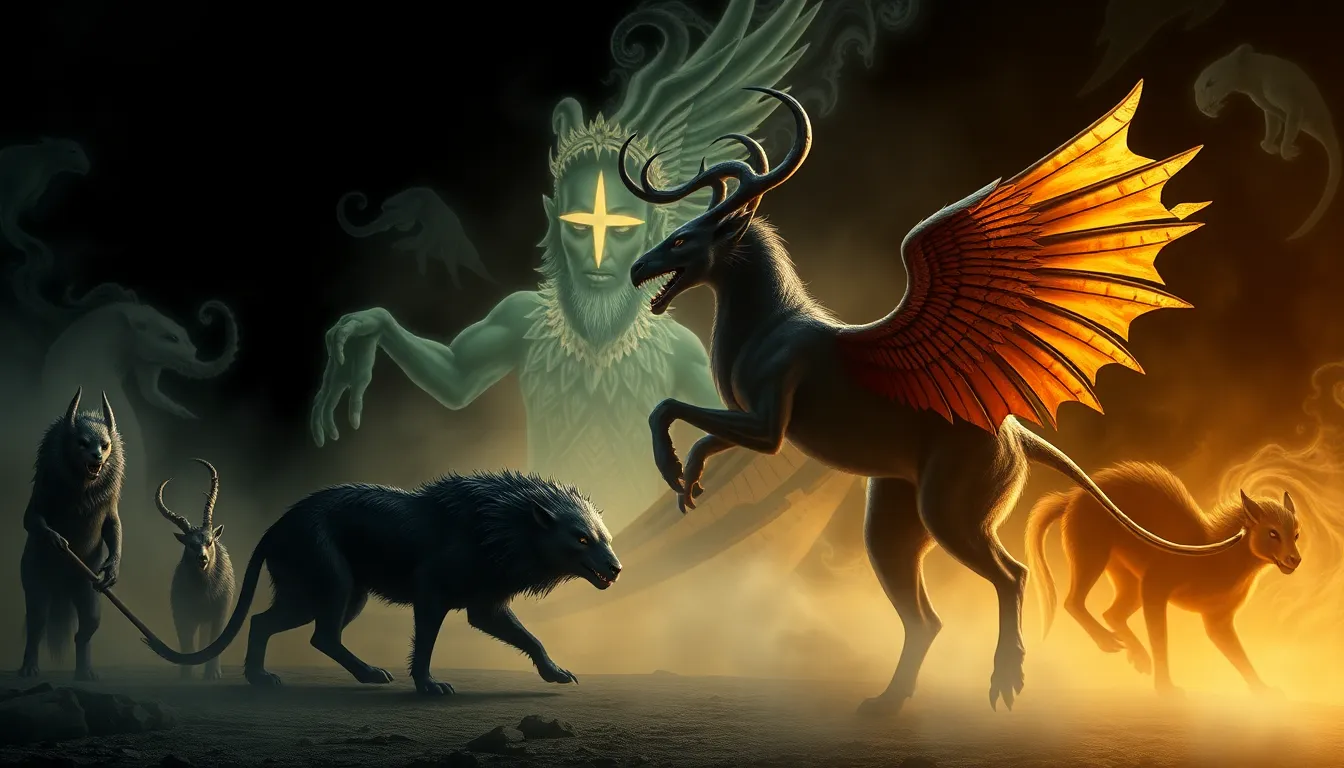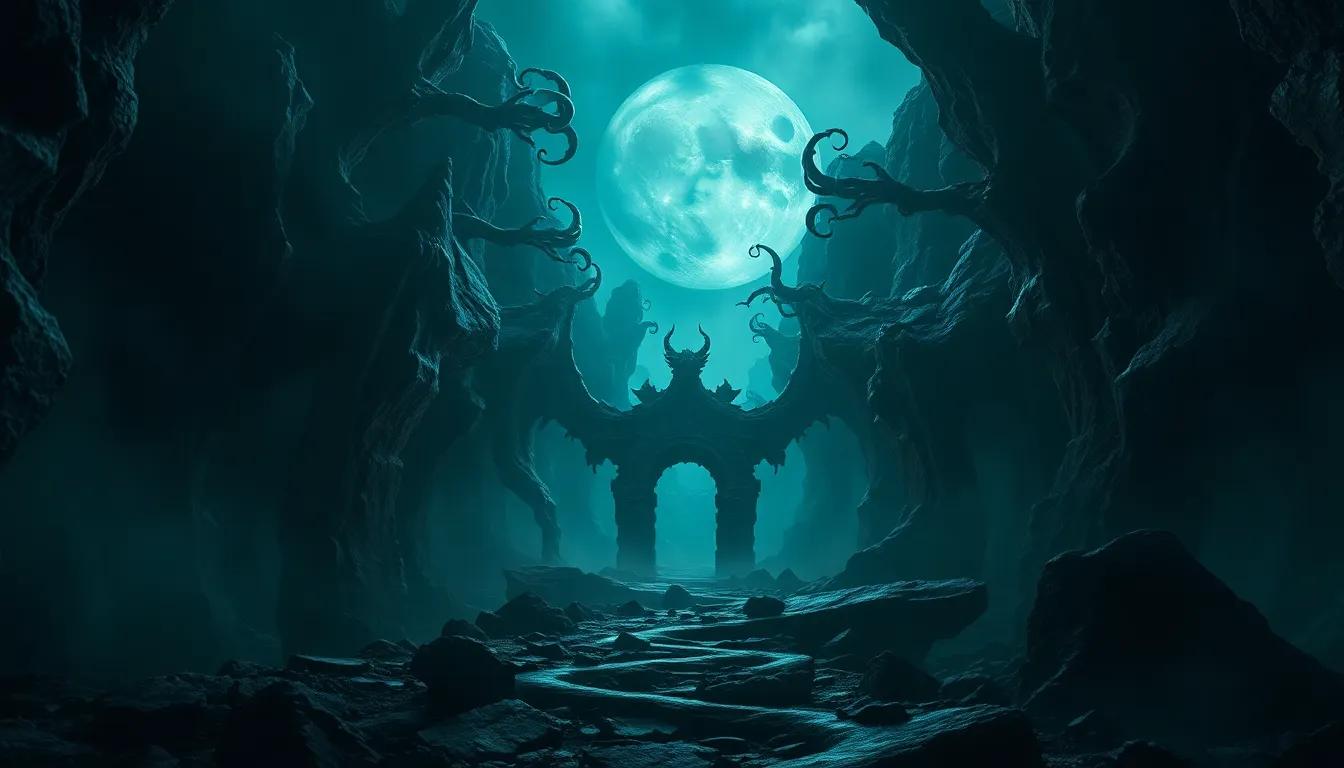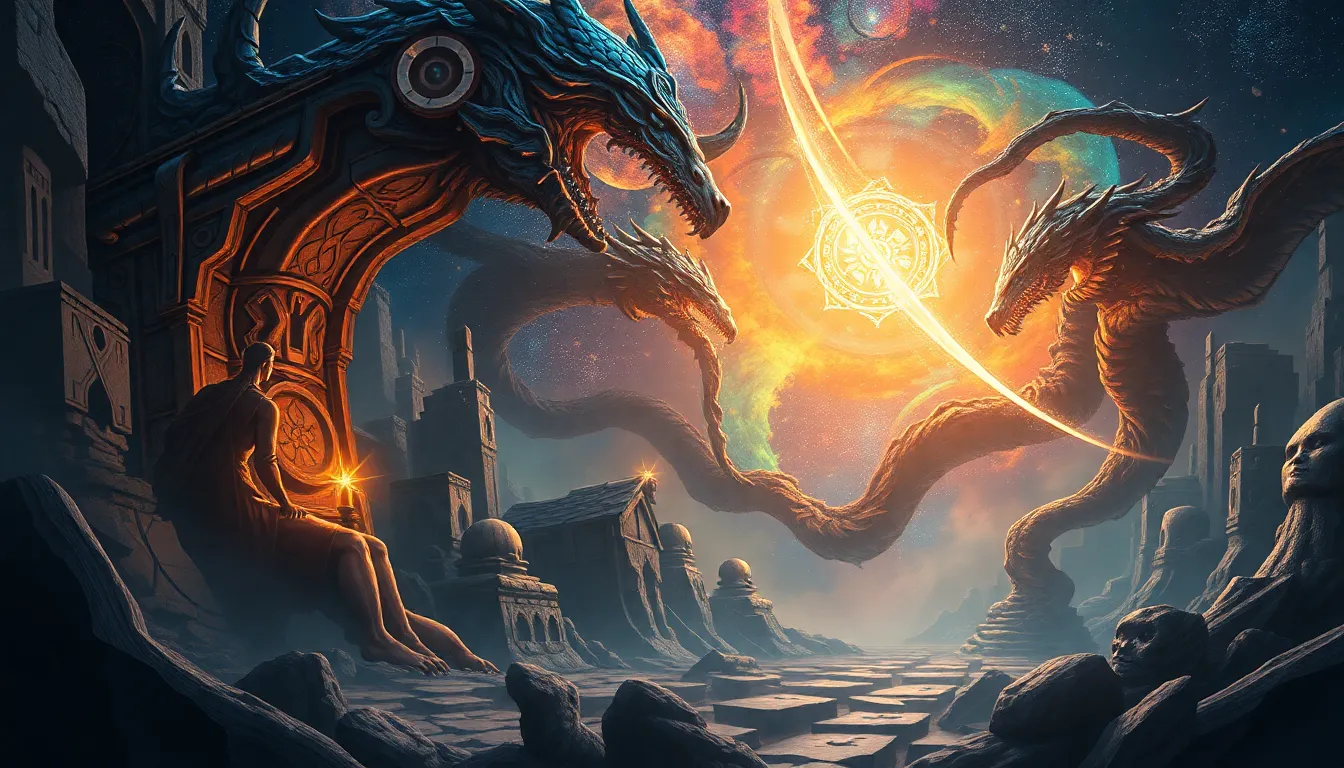The Role of Animals in African Mythology: Sacred Creatures and Legends
Introduction to African Mythology
African mythology is a rich tapestry woven from the diverse cultures and traditions of the continent. It serves as a vital link to the past, preserving the beliefs, stories, and values of various ethnic groups. The significance of African mythology lies not only in its narrative content but also in its role in shaping cultural identity and community cohesion.
In many African cultures, nature is viewed as an integral part of spirituality. Animals, plants, and natural phenomena are seen as interconnected with human life, often embodying the spirits of ancestors or deities. This deep relationship with nature influences social norms, moral values, and cultural practices, making the study of animals in African mythology essential for understanding the continent’s diverse heritage.
The Symbolism of Animals in African Myths
Animals hold profound symbolic meanings across various African cultures. They are not merely seen as living beings but as representations of moral values, societal norms, and natural forces. For instance:
- Lions often symbolize bravery, strength, and leadership.
- Elephants represent wisdom, loyalty, and family.
- Crocodiles are associated with cunning, survival, and the power of the river.
This symbolism often serves to convey lessons about human behavior and societal expectations. Through myths and stories, animals become vessels for teaching values such as courage, kindness, and respect for nature.
Sacred Animals in African Traditions
Several animals are considered sacred in African traditions, playing crucial roles in religious practices and rituals. For example:
- Lions: Regarded as kings of the animal kingdom, lions are often associated with the sun and are considered protectors of the community.
- Elephants: Revered for their intelligence and strong social bonds, elephants are often linked to ancestral spirits and are celebrated in various ceremonies.
- Crocodiles: In many cultures, crocodiles are seen as guardians of the waters and are involved in rituals that seek their blessings.
These animals are often featured in totemic practices, where they are believed to embody the spirit of the clan or tribe, providing guidance and protection to the people.
Legendary Creatures in African Lore
African folklore is also rich with mythical creatures that embody the mysteries of the natural world. Among these, some notable examples include:
- Mokele-Mbembe: A legendary creature said to inhabit the Congo River, resembling a sauropod dinosaur. It is often viewed as a guardian of the river.
- Nguma-Monene: A mythical water spirit believed to control the waters of rivers and lakes, often depicted as a giant snake or crocodile.
These creatures often symbolize the unknown and represent the fears and aspirations of the communities that tell their stories. Their legends are deeply rooted in the cultural landscapes of the regions they originate from, reflecting the relationship between the people and their environment.
Animal Tricksters and Their Lessons
Trickster figures, such as Anansi the spider, play a pivotal role in African storytelling. These characters often engage in clever antics that reveal profound truths about human nature and society. The lessons conveyed through these tricksters include:
- The value of intelligence over brute strength.
- The importance of community and cooperation.
- The consequences of greed and selfishness.
Through their mischief, tricksters challenge social norms and provoke thought, encouraging listeners to reflect on their values and behaviors.
Regional Variations in Animal Mythology
Animal myths vary significantly across different African regions, influenced by geography, climate, and cultural practices. For instance:
- West Africa: Myths often feature animals like the tortoise, known for its wisdom and cunning.
- East Africa: The lion is frequently depicted as a symbol of courage and leadership in the stories of the Maasai people.
These regional differences highlight how local environments shape the portrayal and significance of animals in mythology, emphasizing the diversity of African cultural expressions.
Rituals and Ceremonies Involving Animals
In many African cultures, animals play a central role in traditional rituals and ceremonies. These practices often include:
- Animal sacrifices: Offered to deities or spirits to seek blessings, protection, and favor.
- Totems: Animals are revered as totems, symbolizing clans or families and serving as protectors.
The importance of these rituals lies in their ability to preserve cultural identity and foster a sense of belonging within communities. They reinforce the connection between the people and their spiritual beliefs, emphasizing the role of animals as sacred entities.
Modern Interpretations and Adaptations
In contemporary times, African artists and storytellers are reinterpreting animal myths, blending traditional narratives with modern themes. This evolution is influenced by globalization, which brings diverse perspectives and challenges to traditional beliefs. Artists express these adaptations through:
- Visual arts: Paintings, sculptures, and installations that reflect the symbolism of animals.
- Literature: Books and stories that revisit ancient myths with contemporary relevance.
These modern interpretations serve to keep the rich heritage of African mythology alive while making it accessible to new generations.
Conservation and the Future of Sacred Animals
Environmental changes pose significant threats to sacred animals and their habitats. As communities face challenges related to climate change, habitat loss, and poaching, the future of these revered creatures hangs in the balance. Efforts to address these issues include:
- Community-based conservation: Engaging local populations in wildlife preservation to ensure sustainable practices.
- Cultural education: Promoting awareness of the importance of cultural heritage and its connection to wildlife conservation.
By intertwining cultural preservation with environmental stewardship, communities can safeguard both their heritage and the animals they hold sacred.
Conclusion: The Enduring Legacy of Animals in African Mythology
The role of animals in African mythology is not merely a reflection of the natural world but a profound expression of cultural values and beliefs. The symbolism associated with animals provides insight into the moral fabric of societies and the enduring relationship between humans and nature. As we explore and appreciate the richness of African mythological narratives, we gain a deeper understanding of the continent’s diverse cultures and their interconnectedness with the environment.




